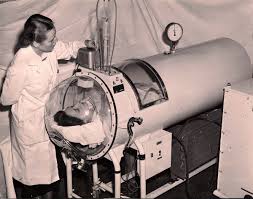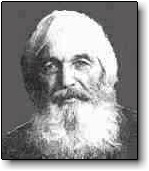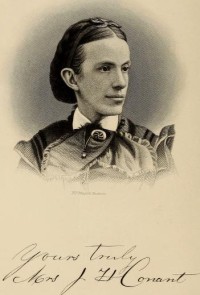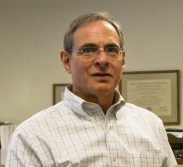
Heavenly Tantrums
Hands up those who would rather be alive than dead.
Everyone!
But wait. There are a few in the back row who didn’t raise their hands. Why not?
Ah! That’s because they’ve already been there! Let’s indulge in a little time-travel so we can talk to them.
First, we’ll head back to the 1950’s and bring Dorothy to the stage. Dorothy contracted polio as a child and spent most of her life in an iron lung.
 “As I died,” Dorothy begins, “my attention was drawn to a bright light … I found myself in a new world … everything was joyful. I could walk again! My muscles could do what I wanted them to do, and I felt completely happy, no pain, no restrictions, all light and gay. I was so pleased to leave my worn-out shell behind me and be free.”
“As I died,” Dorothy begins, “my attention was drawn to a bright light … I found myself in a new world … everything was joyful. I could walk again! My muscles could do what I wanted them to do, and I felt completely happy, no pain, no restrictions, all light and gay. I was so pleased to leave my worn-out shell behind me and be free.”
Then she adds: “A voice – the sweetest I have ever heard – spoke from the light and said: ‘No, Dorothy, I am sorry but it is not time yet. You have more to do.’”
A low murmur fills the hall. Everyone questions what a woman confined to an iron lung could possibly do. Alas, Dorothy can’t share this secret with us, because the nurse rushes to her bedside and successfully resuscitates her.
 Hoping to find answers, we travel further back in time to hear from geologist Arthur E. Yensen, who died in an automobile accident in 1932. A skeptical mine geologist, Arthur was amazed to find himself back in what felt like was his “real home”.
Hoping to find answers, we travel further back in time to hear from geologist Arthur E. Yensen, who died in an automobile accident in 1932. A skeptical mine geologist, Arthur was amazed to find himself back in what felt like was his “real home”.
“I met a group of loving beings on the other side,” he tells us, “and I confessed to them that on earth I felt like a visitor, a misfit and a homesick stranger.”
But then, one of Arthur’s new friends dropped a bombshell: “You have more important work to do on earth, and you must go back and do it.”
“Like a kid having a tantrum, I kicked and screamed and begged.” Yensen confesses. “Oh no, not back to that horrible place! Let me stay, let me stay.”
“One of my new friends explained that earthly life is not supposed to be happy: ‘We call it a miserable preliminary,’ he told me, adding that ‘if you find any joy in it you are just that much ahead.’”
“All my protesting did no good.” Arthur adds sadly. “I would have stayed, but someone bigger than I was running the universe.”
Now, Arthur has also departed and we still don’t know why we’re here. Will we ever understand?
Let’s try Mrs. Conant, who died of an overdose of medication prescribed by a doctor who was “… at the time, unfortunately, under the influence of stimulants”.
Fasten your seatbelts, because we’ll need to travel all the way back to 1873.
 “I met my deceased mother!” Mrs. Conant announces with delight, “When she told me I had to return, I wept and begged to be allowed to stay. Mother gently but firmly told me that I had yet a mission to perform.”
“I met my deceased mother!” Mrs. Conant announces with delight, “When she told me I had to return, I wept and begged to be allowed to stay. Mother gently but firmly told me that I had yet a mission to perform.”
A mission? This was starting to sound serious! Sadly – or happily, depending on your point of view – Mrs. Conant was also revived before she could provide an answer.
Since we’re already in the 19th century, why not call on Dr. Wiltse. He died of typhoid fever in 1889. Perhaps he can shed some light on this mystery.
Dr. Wiltse took an unusual route to heaven. He walked along a road!
“Eventually,” he recalls, “I came upon three large rocks blocking my way, and I paused to consider what I should do. Instantly, a large cloud moved into position over my head and I became aware of an awesome presence within it.”
 The cloud told him: “If your work was to write the things that have been taught you, waiting for mere chance to publish them, if your work was to talk to private individuals in the privacy of friendship – if this was all, it is done, and you may pass beyond the rocks.”
The cloud told him: “If your work was to write the things that have been taught you, waiting for mere chance to publish them, if your work was to talk to private individuals in the privacy of friendship – if this was all, it is done, and you may pass beyond the rocks.”
“I was relieved,” he admits, “and I moved to pass beyond the rocks, but the cloud continued: ‘If however, upon consideration, you conclude that it shall be to publish as well as to write what you are taught, if it shall be to call together the multitudes and teach them, it is not done and you can return into the body.’”
Finally, a clue! Or is it?
Having already died once, Dr. Wiltse reasoned that “if I go back, soon or late, I must die again. If I stay, someone else will do my work and so the end will be as well and as surely accomplished. Again I began to step past the large rock, but … a smaller cloud appeared in front of me and I instantly knew I was going to be stopped. I found myself growing weak and unable to move. Then I lost consciousness.”
Surely we’re not all meant to write books or teach the multitudes!
 Dr. Bruce Greyson, Professor Emeritus of Psychiatry and Neurobehavioural Sciences of the University of Virginia, has conducted numerous studies over four decades on the near-death experience.
Dr. Bruce Greyson, Professor Emeritus of Psychiatry and Neurobehavioural Sciences of the University of Virginia, has conducted numerous studies over four decades on the near-death experience.
He states: “The realization that we each have a mission or purpose was a common theme among survivors. While acknowledging that each person’s mission may not be earth-shattering or news-worthy, experiencers understood that it was crucial for each of us to complete our allotted tasks.”
Allotted tasks sounds far less daunting than missions!
Writing a book or teaching the multitudes may be the ‘allotted task’ for a few, but our purpose is likely to be something far more challenging, like learning patience, humility or forgiveness, or offering light to help someone find their way through a dark world.
“On earth I felt like a visitor, a misfit and a homesick stranger.” Arthur E. Yensen reminds us. Many feel that way.
A few months after the publication of Life After Life, Dr. Moody suddenly realized with horror that his book may have been responsible for a spate of suicides. After all, the accounts he quoted had painted the ‘other side’ as a place full of love and understanding, and where those like polio sufferer Dorothy could run and jump without restriction.
He need not have worried. Research has since revealed that most people who experience an NDE following attempted suicide rarely make another attempt. They return with the understanding that we’re here for a specific time and purpose and recognize that if we don’t honor that purpose, we’ll have to do it all over again.
“If I stay,” Dr. Wiltse considered in 1889, “someone else will do my work and so the end will be as well and as surely accomplished.”
He was wrong. As Arthur E. Yensen reminded us after the failure of his own heavenly tantrum: “Someone bigger than I was running the universe.”
Cheers, SandyC
- Posted in: afterlife
- Tagged: afterlife, bruce greyson, conant, heaven, nde, near-death experience, raymond moody, wiltse, yensen

I agree 100%. Been there. Done that. Our mission is to realize that we are that infinite love bliss beings. Even though this body dies, our consciousness is immortal, and lives forever. Reincarnation is the incarnation of our genetic code that has gathered all our past lives memories into a new baby, thanks to loving parents who welcome us in their hearth, and are willing to devote their lives for us.
LikeLike
What a lovely way to put it, Zulma! Thank you for your comment. SandyC
LikeLike
I could not have said it better myself, and I really mean that.
Harold Stevens
LikeLike
Thank you Harold.
LikeLike